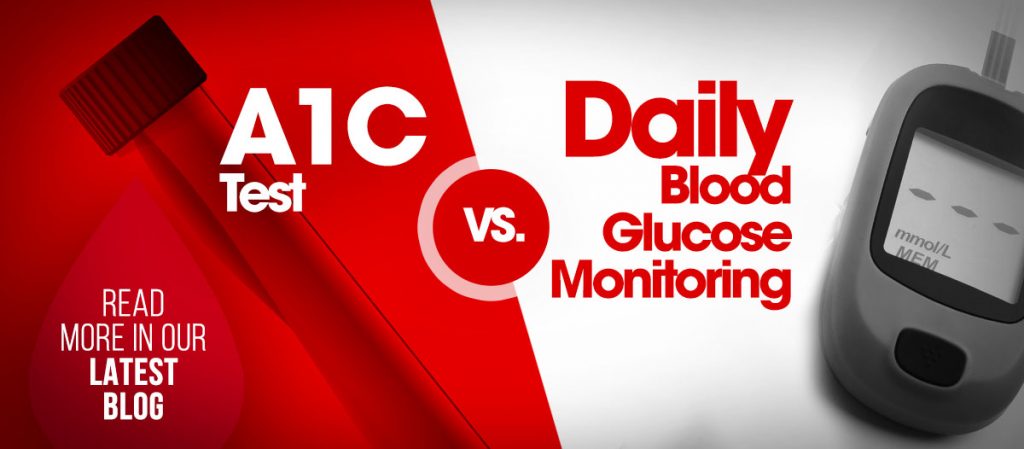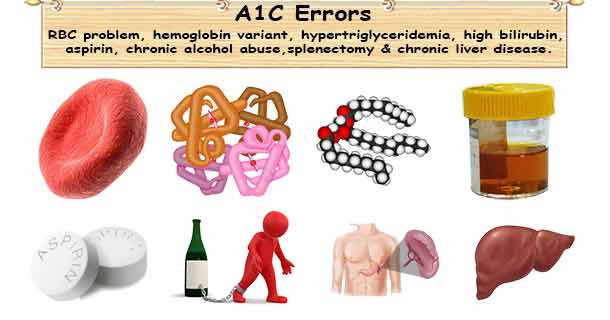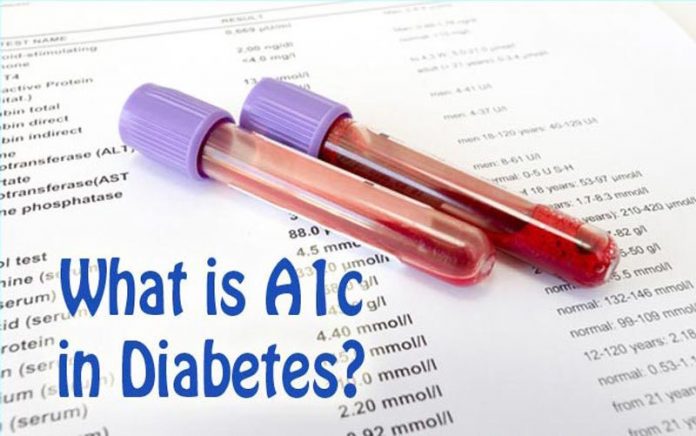A1c is a blood test that gives an average blood sugar level over the past two to three months. The A1c blood test is known by several other names, including:
- hemoglobin A1c
- HbA1c
- glycohemoglobin
- glycated hemoglobin
- glycosylated hemoglobin
- hemoglobin – glycosylated
- diabetic control index

A healthcare provider might order an A1c blood test for a senior who:
- has been diagnosed with diabetes
- is having signs and/or symptoms of diabetes
- is being screened for diabetes or prediabetes
What is the Difference Between A1c and Daily Blood Sugar Checks?
Although the A1c and daily blood sugar levels are both blood levels that give information about a person’s glucose levels, they differ greatly how the data is interpreted. It might help to look at daily blood sugar levels as a pop quiz, where the A1c would be the final exam. Daily blood sugar levels give a quick picture at that point in time to determine immediate treatment needs while A1c gives an idea of how well the sugar levels have been controlled over a longer period of time.

The A1c can help provide a more accurate picture of someone’s blood sugar control, particularly if the daily glucose level is not the person’s norm. For example, a senior might have a high daily blood sugar level if he recently ate a meal, but that result would not reflect that he had tightly controlled levels over the past two months. Alternatively, a senior might have a low daily blood sugar level if she had been fasting before being seen in the clinic, but it would not reflect poorly controlled blood sugar over the past three months.
The A1c measures how much glycated (coated with sugar) hemoglobin (oxygen-carrying protein in red blood cells) is in the blood. This test is typically obtained in a lab or office setting with a tube of blood sent to the lab with results later reported back to the healthcare provider, who then provides an evaluation of results to the senior. CDC-approved home A1c tests are available, but they are not recommended for screening or diagnosis purposes at this time.
What is a Good A1c Level for an Older Adult?

According to the National Institutes of Health (NIH) article entitled “HbA1c,” an A1c level higher than 6.5% can be used as criteria for diagnosing diabetes. Someone who does not have diabetes will usually have an A1c between approximately 4 and 6% while a person may be at increased risk for diabetes (called prediabetes) with an A1c between 5.7% and 6.4%. Generally speaking, a healthcare provider may recommend for someone with diabetes to strive to keep the A1c below 7%. Adjusted goals may be made for some seniors, depending on their health condition and individual needs.
Higher A1c levels can place someone at a greater risk for complications of diabetes. Lowering the A1c level can decrease the risk of diabetes complications, which can lead to more independence and perhaps a higher quality of life.
What Can Cause False A1c Readings?
Conditions that affect the hemoglobin can also affect a person’s A1c level. It may be difficult to interpret the A1c in people with sickle cell because they have lower amounts of hemoglobin. According to the American Association for Clinical Chemistry’s article “A1c and eAG,” several conditions may alter a person’s A1c results.

False low A1c levels may result from:
- heavy or severe bleeding
- anemia
- hemolysis (breakdown of red blood cells resulting from something like dialysis, heart-lung bypass, an immune reaction, or toxins in the body)
False high A1c levels may result from:
- low iron levels
- blood transfusion within the past two to three months
Efforts are being made to standardize lab testing of A1c so that a blood sample sent to several different labs should yield approximately the same results. The American Diabetes Association recommends that people with diabetes check their A1c at least twice yearly and more often if recommended by a healthcare provider.
A1c Blood Test May Help Evaluate Diabetes Care Plan in Older Adults
Although diabetes can be difficult to manage and treat in seniors due to numerous barriers and variables, the A1c may provide helpful information in planning or evaluating a plan of care and can help screen for diabetes and prediabetes in seniors. Higher A1c levels may indicate poorly controlled blood sugar levels with an increased risk of complications, while lower A1c levels may indicate that the diabetes care plan is effectively controlling sugar levels and lowering complication risks.


















